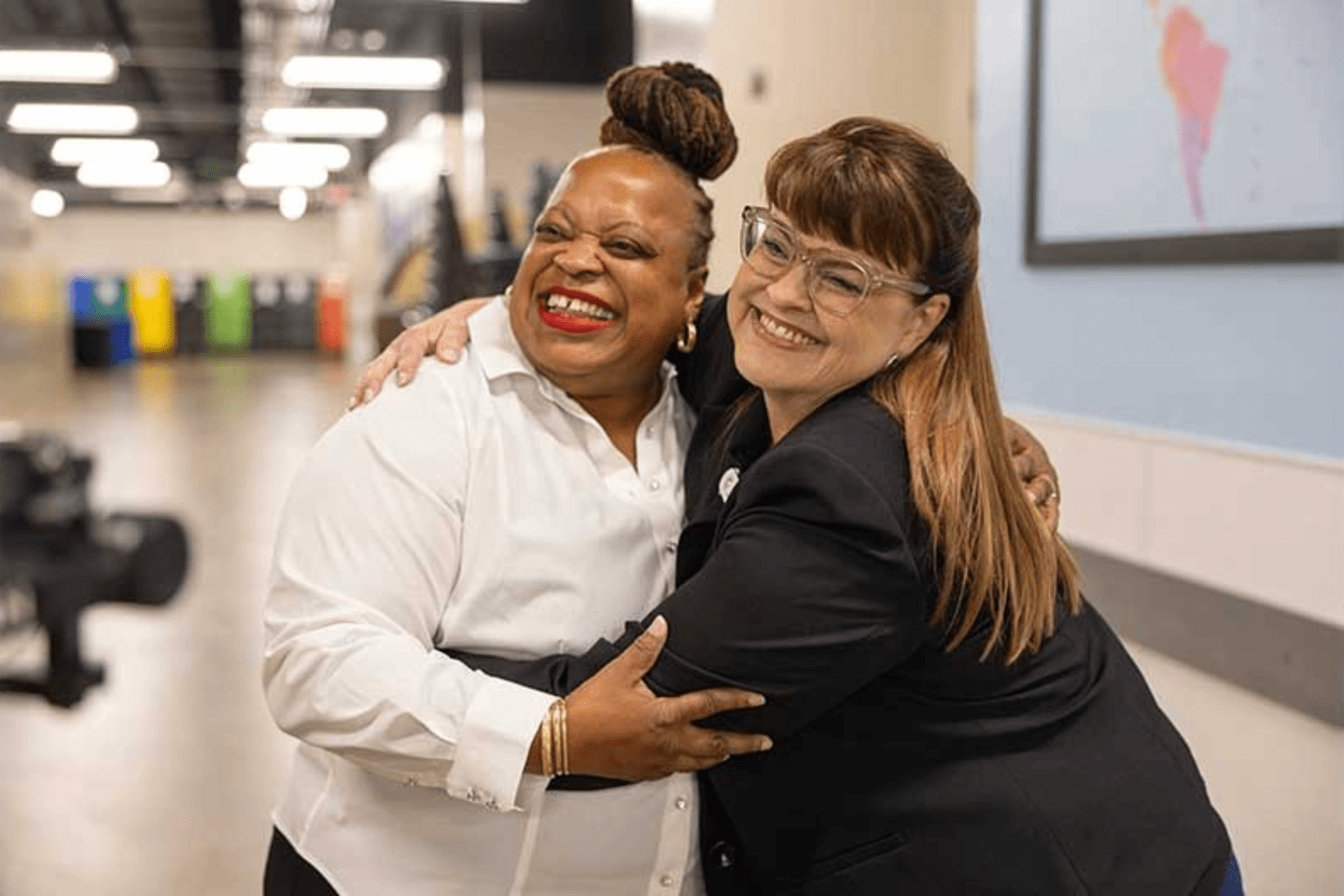There are a couple of numbers that jump off the page about Marriott International.
Half (51%) of the executive positions (vice president and above) in the U.S. Are women. Globally, it’s 48%. Women also make up nearly half of the board and 50% of CEO Tony Capuano’s direct reports.
That’s in stark contrast with the market average.
Per McKinsey’s 2024 “Women in the Workplace” report, women hold just 29% of C-suite roles and 34% of vice president positions. The Conference Board found that women accounted for only 29% of board seats at the Russell 3000 as of 2024.
Something different is happening at Marriott, an honoree on this year’s Coins2Day Best Workplaces for Women™ List.
“It’s not just about the representation of those people in the senior leadership roles; it is also how do they help you navigate getting there,” says Frid Edmond, senior vice president of customer engagement at Marriott and incoming executive sponsor of the Women’s Associate Resource Group (ARG).
That’s why career development conversations play such a crucial role. At Marriott, leaders are expected to regularly talk to their direct reports, as part of their annual performance review cycle, about their career aspirations and how they can achieve their goals. Within these conversations, a subtle shift has been a game-changer — what Edmond describes as a move from mentorship to “career acceleration.”
Before, mentors would keep an eye out for opportunities, and if the stars aligned, they were expected to help associates take the next step in their careers. Leaders have a new expectation: “Tell us what you want, and we are holding ourselves accountable to helping you to get there.”
This shift can be seen in examples from Edmond’s own career, including one indelible career conversation with a supervisor five years ago.
“I was required to come up with three roles that I could see myself in within the next three to five years,” she says. “There was never a promise that these roles would come into play, but it was the art of possibilities, for me, where I saw myself.”
It’s an exercise she now repeats with her own direct reports, and a key ingredient in Marriott’s culture of access to opportunity. “We are required at every single level within our organization to ensure that we are developing the leaders of the future,” she says.
As a result, associates at Marriott are having a much better experience than those at a typical U.S. Company.
Associate resource groups
The Women’s ARG at Marriot, which is open to all associates, supports its 5,500 members by offering mentorship and educational support around topics from financial wellness to executive presence, and mock job interview practice. The group also works collaboratively with other resource groups in the organization, highlighting support for all associates, including military veterans, neurodivergent employees, and working parents.
Allies in the group play an important role in mentorship and sponsorship, Edmond says.
“The majority of my mentors have been men, if I’m totally honest,” she shared. But they were invested in her growth and had the authority in key moments to help guide her. What happened when she made her first presentation to the board? “Our chief legal counsel member, as well as our chief communications and PR lead, sat across from me during the board presentation and gave me simple eye cues,” she says.
Just having their presence was a big vote of confidence, Edmond adds. “I can’t tell you what that means to me to know that these two individuals were that invested in my first time presenting to the board to make sure that I was set up for success.”
Tips for building better workplaces in 2025
For organizations that want to be more like Marriott, Edmond offers a few pointers.
- Invest in associates at every level of the organization
How you invest in associates at lower levels of the org chart eventually impacts results at the top. Edmond, for example, started as an hourly employee and over a 22-year career has held seven different roles in the company.
“You don’t just jump from an hourly employee to an SVP,” she says. Inclusion requires a system of support across every level in the organization.
- Make time for development conversations all year round.
Candid development conversations won’t happen if you only discuss them as an afterthought or in response to an annual employee engagement survey. Your approach to development has to be continuous and thoughtful, Edmond says.
- Celebrate everyday accomplishments, including failure.
Growth for all associates requires the permission to try new things, take on stretch assignments and sometimes fail. “When we fail, we celebrate that, too,” Edmond says.
- Send a clear signal on inclusion from top leaders.
When Marriott’s CEO Tony Capuano reaffirmed Marriott’s commitment to welcoming all, the message had a direct impact on employees.
“Tony was asked some really tough questions at the beginning of the year,” Edmond says. “We were waiting to see how he responded — and he responded the way that we needed.”
The message has empowered Marriott associates to continue to engage. “We start from a place of welcoming all,” Edmond says. “No matter what is going on in the environment, we are always going to welcome all.”
Ted Kitterman is a content manager for Great Place To Work®.













